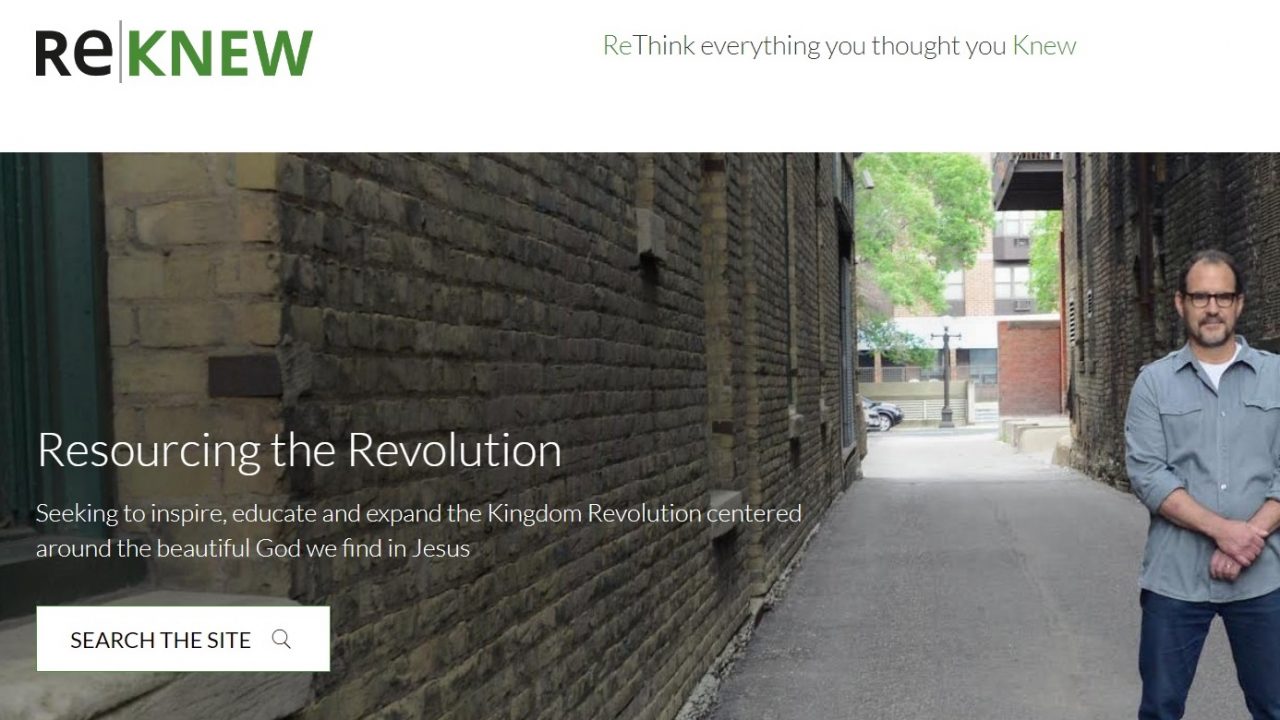by Gregory Boyd
As people who live in a democracy, Christians are certainly free to express their opinions however they see fit. But if one chooses to participate in the political process, it’s vitally important they understand that there is nothing distinctly Christian about this participation. Their opinions may be completely correct and noble, but they are not for this reason “Christian.” Being “Christian” means Christ-like, and the fact of the matter is that, though he was a social revolutionary, Jesus never showed the slightest interest in politics. Nor did any of his earliest disciples. The only instructions Christians are given vis-à-vis government in the New Testament is to respect and submit to authorities as much as possible, to pay our taxes and to pray for leaders so there will be peace (Mk 12:13-17; Rom 13:1-7; I Pet 2:13-17). And even these instructions are not given out of any concern for how government should run but to simply facilitate the spreading of the Gospel.
Jesus’ complete lack of interest becomes even more significant when we remember that he lived in politically volatile times. Not surprisingly, as people began to suspect that Jesus might be the Messiah, they constantly tried to get his opinions on political matters. But Jesus consistently refused. The reason is that the kingdom of God that Jesus [preached] has nothing to do with having the “right” opinions about how the kingdoms of the world should run. It’s rather a kingdom that “is not of this world” (Jn. 18:36).
Jesus didn’t remain silent, however, when asked questions about the kingdom of the world. He rather turned the question around on the questioner and transformed it into a kingdom of God question.
For example, at one point in his ministry some opponents tried to get Jesus to weigh in on the divisive topic of whether or not Jews should obey the law of the land and support the oppressive Roman government by paying taxes. Jesus neither ignored nor obliged the question. Instead, he simply held up a coin and asked, “Whose head is this, and whose title?” It was, of course, the emperor’s. So, Jesus concluded, “Give … to the emperor the things that are the emperor’s and [give] to God the things that are God’s” (Mt 22:20-22). Many Christians have mistakenly thought that when Jesus said these words he was claiming his followers have a duty to their government—to be good citizens, to vote, to serve in office or even to fight for their nation. If we understand Jesus’ clever response in its original context, however, it clearly means nothing of the sort.
To understand what Jesus truly meant, you need to know that most Jews of this time were deeply offended by currency that bore the image of the emperor. They saw it as a direct violation of the commandment against making images (Ex. 20:4; Lev. 26:1). They understood that only God can make an image of himself, and he did so when he made humans (Gen. 1:26-27).
In responding the way he did to his Jewish audience, therefore, Jesus was brilliantly linking the issue of pagan idolatry with the issue of paying taxes. He was in essence saying, “Since we all agree that this piece of metal is idolatrous because it bears the image of Caesar, should we Jews really fight among ourselves over how much of it we should keep? Our only concern should be with making sure we are giving to God that which bears his image—namely, our whole being.”
In this way Jesus wisely transformed a question pertaining to the reign of Caesar into a question that pertained to the reign of God.
This and other episodes make it clear that Jesus did not come to answer our political questions or give us a “new and improved” version of the kingdoms of the world. He rather came to raise a radically different set of questions and establish a radically different kind of Kingdom [thinking]. He came to plant the mustard seed of a new, alternative world order under the reign of God that would eventually render all the political kingdoms of the world obsolete.




